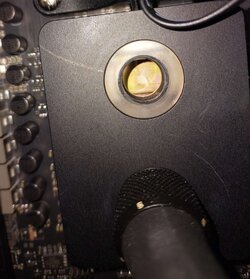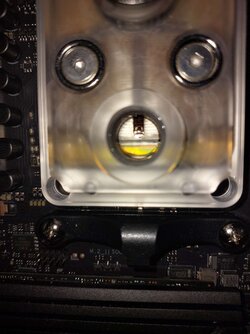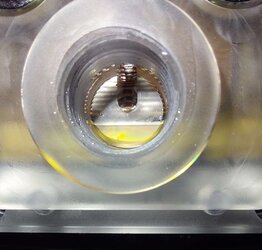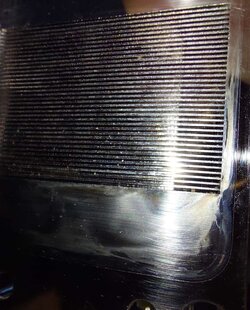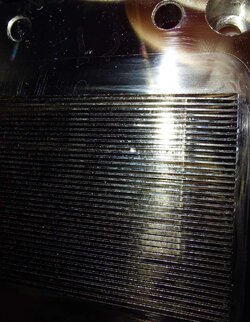I highly doubt it's because of distilled water. If it was clean, then it shouldn't react with anything in these products.
You can doubt but it's exactly what happens if you use truly deionised /distilled water and everything is super clean. The fact it didn't happen to you means your deionised water wasn't deionised enough or you've managed to contaminate it sufficiently with enough ions to prevent it picking up more.
It is a well established fact of chemistry extra pure water dissolves tiny amounts of copper (approximately 1 ug per liter if the entire container is pure copper). I did some research following this and I found lots of reputable resources.
Here are titles of some scientific articles you can read (just Google them) about it:
- Nanometer-Scale Corrosion of Copper in De-Aerated Deionized Water.
- Etching of Copper in Deionized Water Rinse
- Corrosion of Copper by Water: by Peter Szakalos, Gunnar Hultquist, and G. Wikmark at KTH Royal Institute of Technology
It is also mentioned on this very site in this article
https://www.overclockers.com/pc-water-coolant-chemistry-part-ii/
I've heard about it before, but I thought it was hogwash... Clearly it isn't.
The best way to prevent it? Raise a pH to 8at least. It can be done by adding some antifreeze or a good pinch of sodium bicarbonate.
As I said, I had loops with only demineralized water (not even 100% pure distilled), and nothing happened for long months. Another thing is that it takes time to grow anything in the loop. It's not a few days, but more like a month.
This is so wrong....

I've been driving for 20 years and I never had a car crash. Clearly it's impossible to have one right? Don't mistake your experience in very specific circumstances with a whole range of possibilities.
If there is copper present in solution at pH lower than 7, even ever so slightly it will plate all metals such as iron, nickel etc as you watch. It is basic chemistry.
It takes minutes, not months. If copper ion concentration is extremely low like in my case it takes days. Look up an elementary school chemistry experiment called "copper plating a steel nail".
You can also use vinegar mixed with water, as it cleans metals and removes stains. As simple as it sounds, it cleans copper and nickel surfaces pretty well.
This is true, if you have lots and lots of time. Normal strength vinegar will remove nanometers of copper per hour so putting it in a jar for a couple of days/weeks would be a good idea depending on how much copper plating you're removing. Also don't forget to agitate it. However, most people cleaning waterblocks are not removing copper plating, but merely copper oxide powder that got stuck to the surface. Vinegar can help with that much faster.
But I prefer mechanical methods such as toothpaste and an old toothbrush.
